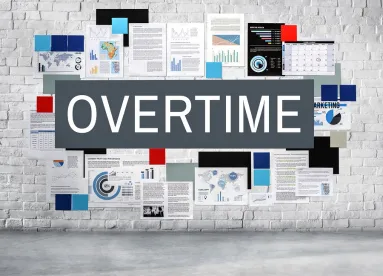On August 22, 2019, in Trina Ray et al. v. County of Los Angeles and Trina Ray et al. v. Los Angeles County Department of Public Social Services, Case Numbers 17-56581 and 18-55276, the U.S. Court of Appeals for the Ninth Circuit ruled that home care workers may sue Los Angeles County for unpaid overtime under the Fair Labor Standards Act (“FLSA”).
Until recently, California home care workers (also known as companions) whose wages are paid by state or county programs were exempt from state and federal overtime laws. Beginning on January 1, 2015, however, a new Department of Labor (“DOL”) regulation eliminated the companion exemption for workers employed by third-party employers and modified the definition of “companionship services.” The new regulation was aimed at providing more home care workers protection under the FLSA’s minimum wage and overtime provisions.
Before the new rule’s effective date, a federal court in Washington, D.C. struck down the rule. The DOL appealed the decision, and the D.C. Circuit Court reversed the decision. The mandate issued on October 13, 2015. However, and despite that the new regulations’ effective date remained January 1, 2015, the DOL announced it would not enforce the new regulation until November 12, 2015.
California, through the California Department of Social Services (“CDSS”), initially began taking steps to meet the January 1, 2015 implementation date, until the regulation was struck down by the D.C. federal court. Then, after the D.C. appellate court reversed the lower court’s decision, the state indicated it would comply with the overtime requirements but not until February 1, 2016—13 months after the DOL rule became effective. This decision opened the door to a collective action under the FLSA.
In June 2017, a California state home care worker employed by California’s In-Home Supportive Services (“IHSS”) program—which is implemented and run by the State of California and its counties—filed a putative collective action in federal court against the County of Los Angeles seeking unpaid overtime wages between January 1, 2015 (the date the DOL rule became effective) and February 1, 2016 (the day the state began paying overtime wages). The County moved to dismiss the complaint on the basis that it is entitled to state immunity under the Eleventh Amendment. The County’s argument was premised on the theory that the County functions as an “arm of the state” as it relates to the IHSS program.
The court held that the County had no Eleventh Amendment immunity, and also held that the home care workers could not retroactively enforce the DOL regulation. Instead, it held that the home care workers could recover overtime wages from November 12, 2015 (the date the DOL began enforcing the regulation) through January 31, 2016 (the day before when California started paying home care workers overtime). Both parties appealed.
A three-judge panel for the Ninth Circuit Court of Appeals affirmed the district court’s holding that the County is not entitled to Eleventh Amendment immunity and reversed the district court’s holding that the home care workers could only recover overtime wages beginning November 12, 2015, holding instead that the effective date is January 1, 2015.
The Ninth Circuit’s ruling could prove to be a significant blow for the County of Los Angeles because the County employs about 170,000 home care providers solely under the IHSS program. But more than that, the implications of this ruling may transcend this case and this county. This ruling potentially opens the door to more collective actions by home care workers employed under different government programs, and it may trigger more collective actions against other California counties.



 />i
/>i
